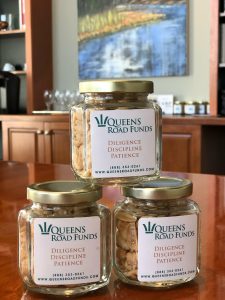Value investing – the simple notion that it’s not a good idea to overpay for the stuff you buy – makes enormous intuitive sense. Two indisputable facts about value investors:
-
In the long run, they crush growth investors
A July 2020 research note from the Bank of America reports that “from 1926 to now, value investing has handily outperformed growth investing, notching a gain of 1,344,600% versus growth’s gain of 626,600% over that same time period” (Matthew Fox, “Value investing has been ‘broke’ since 2007,” Business Insider, 7/14/2020
As recently as the end of 2018, the since-inception record (1992-2018) for Vanguard Value Index (VIVAX) still trumped Vanguard Growth Index (VIGRX).
-
It hasn’t been “the long run” for a long time.
Since emerging from the Global Financial Crisis (2007-2009), growth stocks have been on a tear often led by a small group of stocks whose valuations could be justified only if you assume that their corporate growth will extend unbroken for between 50-250 years. To get a sense of the magnitude of the divergence, I used to screener at MFO Premium to find both the best fund and category average in value and growth for the past 10 years.
10-year Value Gap 10-year Growth Smead Value SMVLX 12.8% Average: 10.1 760 bps Invesco QQQ Trust 20.4% Average 16.2% WisdomTree US MidCap Dividend DON 11.3% Average: 8.7 980 bps T Rowe Price New Horizons PRNHX 21.1% Average 14.1% SPDR S&P 600 SCV ETF 10.9% Average: 7.2% 600 bps Wasatch Ultra Growth WAMCX 18.9% Average 13.2% It’s painful enough to note that the best growth fund in each size crushed the best value fund by 600-1000 bps.
It’s more painful to note that the average, run-of-the-mill, no-possible-reason-to-own-it mediocre growth funds beat the very best value fund in its size category by 600 bps in the same period.
Things have only gotten worse during the coronavirus pandemic with absolutely historic divergences of 2,000 bps between growth and value. Research Affiliates now tags the growth – value divergence at being at the 100th percentile; that is, there has never been a more extreme split between the two (Rob Arnott, et al, The reports of the death of value may be greatly exaggerated, May 2020).
Value investors, especially dedicated value boutique firms, have suffered tens of billions of outflows, enough to threaten the survival of some small- to mid-sized firms. That’s especially troubling for a couple of reasons.
First, value investing’s absolute returns have been perfectly respectable. Booking 10% annual returns, which was easily achieved in all three value sizes, is exactly in-line with the returns of the US equity market over the past century. It’s only the dizzying returns available from growth strategies that make it look unattractive.
Second, value is quite capable of crushing growth in the decade ahead. One of our worst cognitive biases is assuming that the future is here; that is, we project whatever we’re experienced right now and assume that it will continue unabated.
Mr. Arnott of Research Affiliates argues that “the stage is set for potentially historic outperformance of value relative to growth over the coming decade” (May 2020). Their research on “broken asset classes” (June 2020) – that is, stuff written off for dead – concludes that value might outperform growth by 13-15% a year for much of the decade. The chief strategist for Bank of America (July 2020) offers seven reasons why value might surge, offering the 95% prospect of a substantial period of substantial value dominance.
The key is making sure that there are first-class value investors available to you so that you have the opportunity to profit from that turn.
 FPA and Queens Road have entered a promising partnership to help guarantee it.
FPA and Queens Road have entered a promising partnership to help guarantee it.
On July 30, 2020, the two announced a strategic partnership for FPA to oversee and market the Queens Road Funds and related institutional separate accounts. Two related developments:
- both Queens Road Funds will plan to offer an institutional share class with materially lower expenses with the goal of offering “below average” expenses in the Morningstar institutional class categories
- FPA Capital Fund will be merged into the new Queens Road Small Cap Value institutional class once the Queens Road funds have migrated to the FPA platform. As many as possible of Queens Road’s investors will be shifted to the lower-cost institutional classes.
Who wins from this integration? Off-hand:

These really are famously good!
Queens Road wins. Manager Steve Scruggs and his team have a remarkable track record of 18 years, consistently offering solid returns paired with some of the best risk scores for any fund in their category. Nonetheless, they’ve gotten little traction in the market which keeps them from being able to develop the economies of scale that would benefit their investors. Both the strength of FPA’s institutional relationships and the inflow from the FPA Capital merger will help reverse that. And they believe that their styles and cultures are well-aligned. Mr. Scruggs noted, “we declined numerous offers from other firms who wished to partner with us. But when FPA suggested working together, we were immediately interested. We have followed FPA for several decades, and similarly embrace a long-term, value-oriented approach, capacity discipline, and shareholder focus.”
FPA wins. With the spin-off of their two international and world funds to Polar Capital completing later this year, closing FPA New Income (FPINX) to new investors, and eventually merging away FPA Capital, FPA is creating on-hand administrative and marketing capacity. The addition of the Queens Road funds allows them to use that spare capacity to generate additional visibility and assets. It also offers attractive options to FPA investors who might be growing concerned that the FPA lineup is thinning.
FPA Capital shareholders win. In the merger with Queens Road Small Cap Value, they move from a closed, underperforming fund that charges 0.92% to a really first-rate fund that will be charging 0.89%.
Other small, value-oriented managers win. To be blunt, the “go it alone” approach is a disaster waiting to happen. The long-term survival of independent managers is in the hands of two groups: professional advisors and online supermarkets such as Schwab and Fidelity. Neither group is hospitable to small, independent operations; both want to see hundreds of millions in assets, which demonstrate “viability,” before even engaging. But the hundreds of millions are almost impossible to secure without the active support of professional advisors and online supermarkets.
The ability to join with like-minded managers in an arrangement that maintains the independence of the teams while creating a critical mass of resources seems vital, especially now. In some ways, it was pioneered by Steve Romick’s own decision to bring his Crescent Fund to FPA in 1996 and is comparable to the highly-successful model used by Artisan to aggregate and support – but not constrain – “category killing” management teams under the Artisan umbrella.
For the benefit of interested parties, the Observer published an updated profile of Queens Road Value in July 2020 and we’re publishing a short profile of Queens Road Small Cap Value in this issue, August 2020. They are both exceptional funds, well worth your interest.












